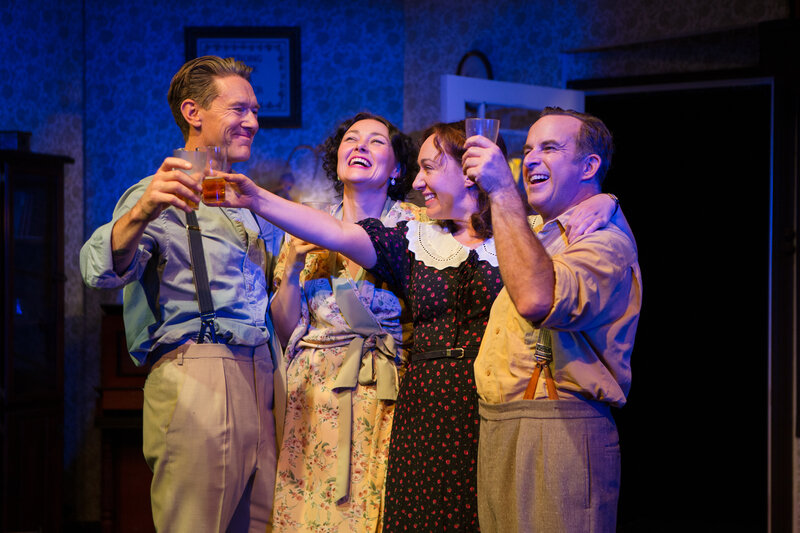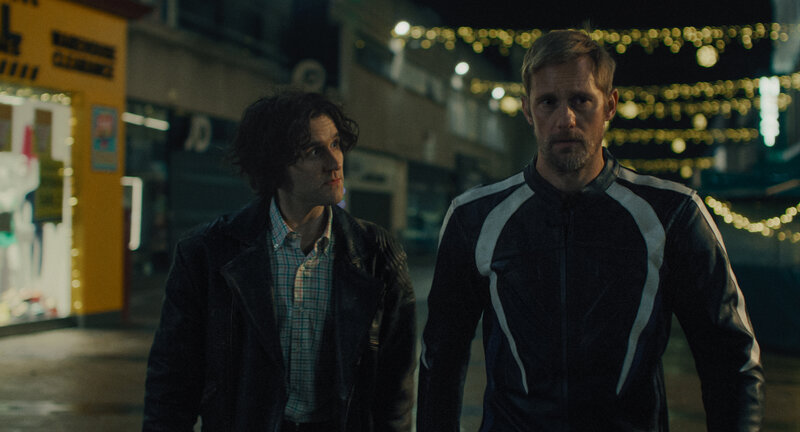A rites of passage story with strong romantic elements and a film built on the musical foundations of 1980s British bands, Sing Street focuses on the perils and wonders of teenage life.
Conor (Ferdia Walsh-Peelo) is one of three children living in a toxic environment. At just 15, he has a brother, six years his senior, and a sister. Their father has lost his job and is forever fighting with their mother, who is having an affair. A marriage breakdown seems inevitable, but divorce was not allowed in Ireland at the time. With money tight, Conor – an intelligent and thoughtful lad – is forced to change schools. He goes from a posh private institution to a rough and tumble environment, where he is immediately set upon. Conor decides to form a band to attract the interest of a very pretty girl, Raphina (Lucy Boynton – Miss Potter).
 The origins of Sing Street go back many years to writer/director John Carney’s (Once) life as a teenager in 1980s Dublin. He experienced growing up in the Irish capital by moving from private school to an inner city comprehensive. It ultimately became the seed of an idea to create a musical film about that period in his life.
The origins of Sing Street go back many years to writer/director John Carney’s (Once) life as a teenager in 1980s Dublin. He experienced growing up in the Irish capital by moving from private school to an inner city comprehensive. It ultimately became the seed of an idea to create a musical film about that period in his life.
The film is also a story of contrasts – the contrast of Ireland versus England, Dublin versus London and the safety of a private education versus one in the state system. But most importantly for Carney, it was the contrast of a young teenage boy who thinks he has problems, which are far outweighed by those of the girl he meets and ultimately falls for. Bear in mind, this was a time of recession and immigration. Even those who should have had money often didn’t and were forced to think a little differently in terms of the clothes they wore, how they expressed themselves and looked.
The production team held auditions for six months to look for the leads. Ferdia Walsh-Peelo had come from a musical family with a background in opera and Irish folk music. He had been a boy soprano and toured The Magic Flute with the Opera Theatre Company. He was also classically trained on piano.
Despite the dark undertones, the take home message from Sing Street is upbeat, namely if you want it badly enough you can overcome any obstacle. Whether or not that is true, the central character is driven and passionate in terms of what he wants to achieve and goes for it. He may be only young, but he deals with roadblocks in a very mature way. Conor and Raphina, on whom he has designs, are extremely likeable, as is his older brother, who provides invaluable coaching and life lessons. The latter’s gruff exterior belies a real sense of care. As he says at one point in the film, he has paved the way for his younger bro.
I should say though that the one-year age gap supposedly depicted in the movie didn’t ring true when it came to the actors who filled the roles. As good as they were – and I enjoyed both performances – Walsh-Peelo looked like a fresh-faced youngster, but Boynton, beautiful though she is, looks (and is) many years older. Nevertheless because I was enjoying what I what seeing, I went with the flow. I loved the music that Conor and his band created – the soundtrack is a beauty. So, Sing Street is feel good entertainment that could have been far more sinister, but Carney’s lightness of touch – just as another moment of despair arises – works. Rated M, it scores a 7 to 7½ out of 10.
Sing Street is available on DVD, Blu-ray and via on-demand services from 9 November 2016.
Alex First

David Edwards is the former editor of The Blurb and a contributor on film and television




